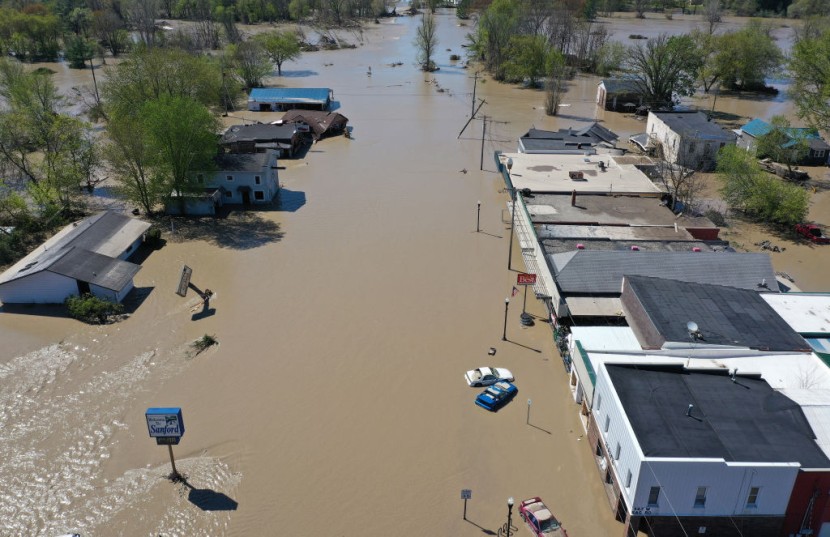
Severe cyclones have again ravaged Michigan, leaving a path of destruction and raising concerns about the impact of climate change on the frequency and severity of such occurrences.
The National Weather Service canceled all tornado warnings for the Detroit metropolitan area after a second round of severe storms wreaked havoc and disorder in their wake and canceled all previously issued tornado watches, according to the Detroit Free Post.
Michigan's Battle with Nature
In Kent County, which is on the western side of the state, a tree and a house were both damaged by what appears to be a tornado. Meteorologists from the National Weather Service in White Lake cited a report from the Kent County emergency manager regarding the incident, pending confirmation.
Similarly, in Ingham County, a large and potentially hazardous tornado was spotted moving east near Williamston and Webberville. Warnings for tornadoes were also issued in other parts of the state, painting a grim picture of the increasingly frequent and erratic weather patterns.
The severe cyclones that struck Michigan did not occur in isolation. Earlier on the same day, torrential rainfall swept across metro Detroit, causing flooding in Canton, Romulus, Van Buren Township, Plymouth, and Novi, among other areas.
Flooding disrupted roadway access to the McNamara Terminal at the Detroit Metropolitan Airport, leaving passengers stranded for hours.
As experts and scientists investigate the consequences of climate change, it becomes clear that they extend far beyond the well-known temperature fluctuations. Incidences of severe storms and inundation are becoming a defining aspect of the effects of climate change.
The Natural Resources Defense Council emphasizes that floods are one of the most frequent and deadly natural calamities in the United States, affecting nearly every state and county. Unfortunately, the situation is anticipated to deteriorate. The non-profit environmental advocacy organization forecasts a 45 percent expansion of floodplains in the future due to extreme weather events.
The repercussions of these cyclones extend beyond the immediate destruction. Cities and utilities acknowledge that climate change makes it not only more difficult but also more expensive to prevent and rectify damage to infrastructure from downed power lines, flooded streets, and other causes, as per CNN.
Read Also : Key Takeaways from the First Republican Debate; Donald Trump's Absence, Vivek Ramaswamy's Unlikely Rise
Rising Costs and Unpredictable Climates
In addition, the expense of these occurrences increases residents' utility and insurance costs, adding to the inconvenience that storms already cause. DTE Energy, which is presently dealing with approximately 21,000 customers without power, recognizes the role of climate change in outages and restoration efforts.
The shifting forecast, which corresponds to the changing weather conditions, highlights the unpredictability of these catastrophic weather events.
As a precaution, experts advise residents to remain indoors and to prevent standing water on the road. Meanwhile, the impact of these storms has spread beyond Michigan's borders to portions of Ohio, where nearly 700,000 homes and businesses are without power.
The severe thunderstorms, which included heavy rainfall, strong winds, and even a confirmed tornado, have raised concerns about the broader patterns and implications of extreme weather. Flood watches are in effect for portions of northern Ohio as a result of excessive precipitation, reflecting the scope of this climate change.
Recent cyclones are a stark reminder that the Earth's climate is undergoing substantial changes, resulting in more frequent and severe weather events.
As communities deal with the immediate aftermath, there is an urgent need to address the underlying causes of these transformations and work toward solutions that mitigate the effects of climate change while simultaneously adapting to the new reality it presents, CBS News reported.
© 2026 HNGN, All rights reserved. Do not reproduce without permission.








